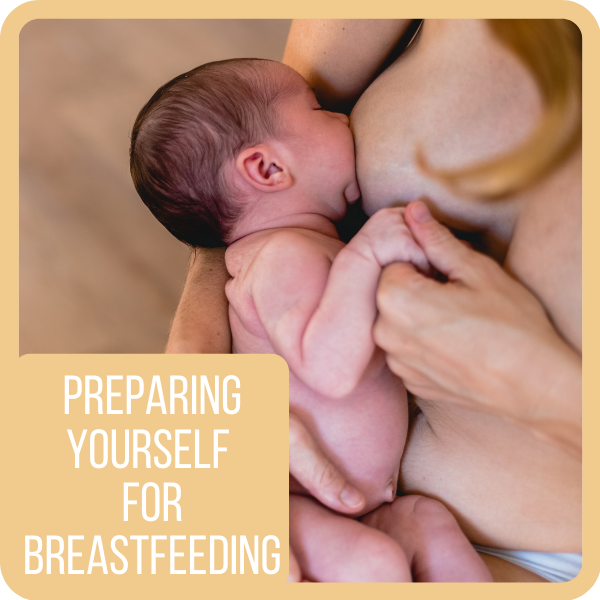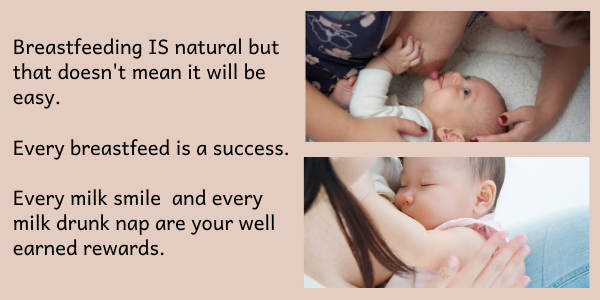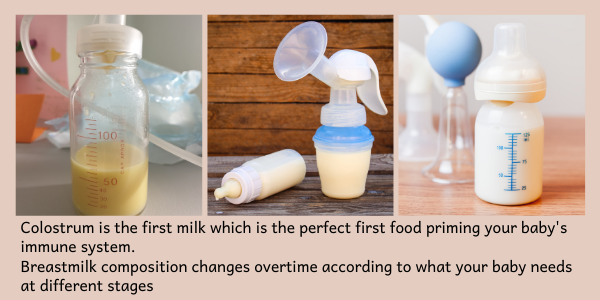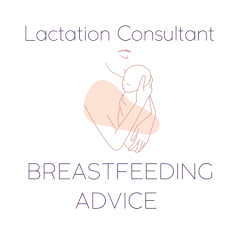Preparing yourself for breastfeeding Eat Suitable for stages: Pregnancy, 0 - 3 Months


Breastmilk is sometimes respectfully referred to as 'liquid gold'. There are still components of breastmilk that are being discovered by researchers. So far, we know that breastmilk is nutrition (catered for your baby's gender and growth needs), hormones, immune components (antibodies and anti-inflammatories), over 700 species of microbes, and human milk oligosaccharides (or HMOs) which are indigestible sugars to feed your baby's gut microbiome to crowd out pathogens and train the immune system. How amazing is that! If you want to know more, check out this journal article.
Once you appreciate how customised your breastmilk is for your baby, you can see why people get so passionate about breastfeeding and why supporting mothers to breastfeed is important as well as making milk banks available as an option.
Thinking and planning for breastfeeding your baby during the latter part of your pregnancy can increase your chances of a successful breastfeeding relationship (Ahluwalia, Morrow, & Hsia, 2005). Many people get preoccupied with preparing for birth without considering that labour is measured in hours, where a successful breastfeeding relationship can last for years.

The World Health Organisation’s (WHO) official statement is that “Exclusive breastfeeding is recommended up to 6 months of age, with continued breastfeeding along with appropriate complementary foods up to two years of age or beyond.”

Learning about breastfeeding will help you to set realistic expectations around what is normal and make a plan for success. You can learn about breastfeeding through reading or courses, observation and talking to other breastfeeding mothers, and later experience can give you the power, confidence and every chance of success. There are many myths about breastfeeding, and going into it with realistic expectations can help you avoid the pitfalls. Expect the early days of breastfeeding to be like learning to dance where the steps and rhythm is always changing and your dance partner has never danced before. Most hospitals will run an antenatal class with introductory information about breastfeeding and may also offer a dedicated breastfeeding course.

It can help to discuss during antenatal visits, exactly what your breastfeeding intentions are and have a plan around achieving your breastfeeding goals. Make sure to include breastfeeding into your post-birth plan which will support you to first establish breastfeeding and quickly navigate through any problems. It can help to know your hospital's discharge policy and what postnatal services will be available to you such as Child and Family Nurse visits, lactation clinic or consultants in your area, mother-baby postnatal unit or day stay centres. You could also explore the availability of donor milk in your area as a backup should you need it. Donor milk needs to be pasteurised, however new research has discovered that incubating your own milk into the donor milk can make it more personalised. Breastmilk never fails to amaze!
Having a partner on your journey who is supportive of you breastfeeding can make a huge difference to breastfeeding success. Consider who amongst the people you know either in your family or a close friend could offer breastfeeding support or advice, then ask them to be your person. Alternatively consider finding a mentor through a breastfeeding support group. Additionally, reputable organisations such as the Australian Breastfeeding Association (ABA) or a board-certified Lactation Consultant (found within hospitals and privately) can give you the information you need to get started successfully and also know where to get help if and when you need it.
Colostrum is the first (yellowy thick) milk produced which is high in antibodies (for fighting disease) and lower in sugar and fat but higher in protein. Colostrum can be milked from the breast safely from around 37 weeks and stored to give to your baby as the first food. More information can be found on the ABA website but you can choose to express colostrum to supplement the first feeds should there be a problem post-birth where you are unable to breastfeed or there is a delay while your milk comes in.

The breastfeeding relationship is established from the first minutes to an hour after birth, so having supportive birthing and post-birth care can help mothers and babies to take advantage of that 'golden hour'. The research around breastfeeding is always evolving as there is still so much we don’t know, however, there is a lot we do know. We know the benefits for disease protection for baby and mother, nutritional advantages and understanding of the strong hormonal bonding that breastfeeding supports. Even though breastfeeding can start immediately after birth, it is not fully established until between 36 to 72 hrs after birth - this is known as having 'your milk come in'.
The composition of breastmilk changes over time, but the main ingredient is water. At birth, our body has the highest percentage of water, which gradually decreases as we age, so the importance of getting enough water during pregnancy and breastfeeding can't be understated. Hydration helps multiple body processes and is essential for maintaining a good supply of breastmilk and energy. Implementing simple habits around drinking can help such as always having a clean, full water bottle on hand and making sure to drink before breastfeeding and/or after, prioritise drinking at the first signs of thirst, and monitor your hydration by checking the colour of your urine (you can print off the colour chart and have it near your toilet).
When pregnant, it is often advised to increase caloric intake by between 300-350 per day, during breastfeeding it is often advised to increase by 450-500 per day. To find out what you need, you can try this calory calculator from The Lactation Nutritionist.
Just when you need more calories than ever, there will be less time to cook and prepare food whilst looking after a new baby. You don’t need to eat for 2, but you do have the responsibility for 2. Your milk will prioritise nutrition for your baby, so eating better will mean there are leftover nutrients for your body to be nourished and have enough energy. During pregnancy is the time to get prepared with freezing nutritious meals and stocking up on breastfeeding biscuits/healthy nutrient-dense snacks so you can keep up with your energy needs. Having a plan around getting some help with meals (from friends, family, paid help or prepared meal delivery) once your baby arrives will give you the best chance of recovering from birth and establishing a milk supply.
If you have no idea how to source ingredients for and cook nutritious healthy meals- now is the time to learn. Take a cooking class, sign up for an online course, read or listen to books or podcasts, join a Facebook group, however you can learn best and whatever you will respond to with action will be the way to go. Starting this learning process now will serve you well into the following years to build confidence to provide what your child/ren (and the whole family) needs to thrive. Cooking is a creative and sensory process in which you can experiment with ingredients, combinations, flavours, textures, & smells - just have fun with it. Learning some fundamentals of what flavours work well together, different ways to cook foods (so it doesn’t get boring & you have options when time poor) and how to use foods which would otherwise be wasted (such as in broths and soups) - these skills will be used over and over again and built on over time.
Accepting offers of help and support is not a reflection of them thinking you can’t cope, it’s a reflection of the importance of the mother role that only you can do. Others can help by taking jobs off your to-do list like cooking, cleaning, tidying, and groceries. Options are to take offers of help, delegate or consider paid help or if the job can just wait.
If you will want to return to exercise while breastfeeding, it can be reassuring to know that moderate exercise is fine for breastfeeding mothers but vigorous exercise may affect supply. Feeding your baby before exercise can improve breast comfort while exercising. You will also need to invest in some supportive bras in a few different sizes as your breasts can fluctuate between different cup sizes as your milk supply fluctuates.
Financial pressures and the need to return to work early are one of the main barriers to mothers continuing to breastfeed. In Australia, there are anti-discrimination laws to protect a woman’s right to combine breastfeeding and paid work, however, negotiation is required between the worker and employer. Arrangements can be made to allow breastfeeding or pumping at work in suitable facilities and during dedicated work breaks or to offer appropriate shifts where available which allow continued breastfeeding. The ABA has great resources and factsheets detailing the laws around this issue. Having a plan around finances whilst on maternity leave and around returning to work can take a lot of pressure off down the track and allow you to better enjoy your time with your baby.
Please note: Above all, any information on this website aims to provide general ideas for informational and educational purposes only. We encourage users to investigate several information sources, including, where necessary, independent individualised medical advice before making any decisions that could affect you or your child’s health or wellbeing.
BabyPeg participates in various affiliate programs and may earn a commission for referring our users through the links provided. This is at no additional cost to our users. We take great care in choosing products and services which align with the mission of promoting better health and wellness for our BabyPeg community. Where possible, products are tried and tested by us. To continue to provide BabyPeg as a free service and reach as many parents as possible, we appreciate your support in using the link provided to purchase if you decide the product is right for you.







